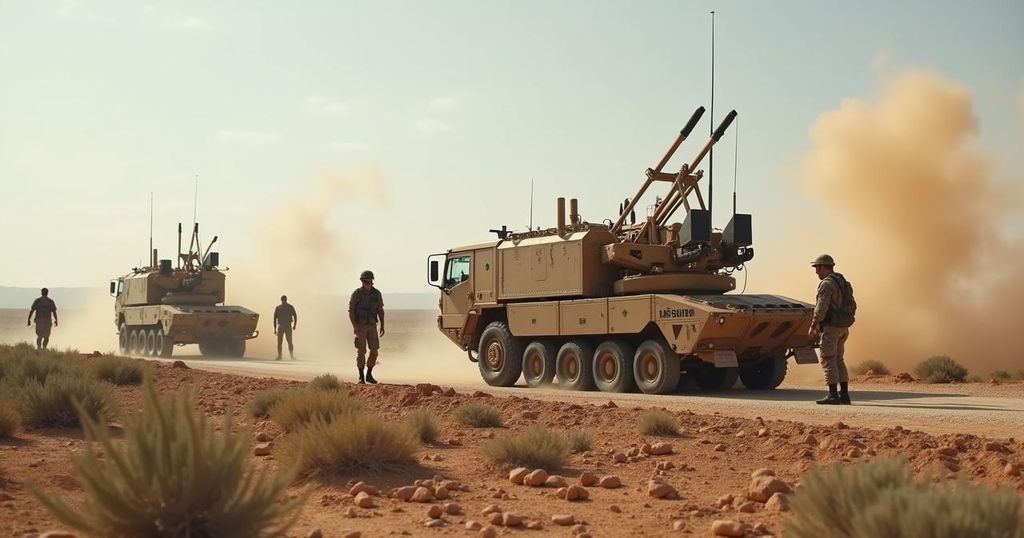Escalation of Tensions: U.S. Military Support for Israel Amid Hezbollah Attacks

Key updates in the Israel-Lebanon conflict include a deadly Hezbollah drone attack on Israeli soldiers, prompting U.S. deployment of a THAAD missile system to bolster Israel’s defenses. Concurrently, Israel faces international scrutiny following airstrikes in Gaza, leading to civilian casualties and UN warnings regarding potential war crimes against peacekeepers. Prime Minister Netanyahu’s demand for UN peacekeepers’ withdrawal reflects the heightened urgency in the ongoing conflict.
Recent developments in the ongoing Israel-Lebanon conflict have intensified, with notable events including a drone attack by Hezbollah that resulted in the deaths of four Israeli soldiers, alongside a significant U.S. military response. In light of increasing tensions, the U.S. has announced the deployment of a Terminal High Altitude Area Defense (THAAD) missile system to Israel, accompanied by troops to operate the system. This action, declared by the Pentagon, reflects the United States’ unwavering commitment to safeguard Israel against potential missile threats, particularly from Iran, which had recently issued warnings regarding U.S. military involvement in the region. The drone strike carried out by Hezbollah on an Israeli army base near Binyamina is reported as a retaliatory measure following Israeli airstrikes in Beirut that reportedly killed 22 individuals. In a related move, Israeli Prime Minister Benjamin Netanyahu has called on the United Nations to remove their peacekeeping forces from southern Lebanon, stating that their presence is counterproductive in light of the ongoing hostilities. The UN has condemned the recent attacks on peacekeepers, indicating that such actions may constitute war crimes, further complicating the delicate situation. In Gaza, continued Israeli airstrikes have resulted in civilian casualties, including the deaths of at least 20 individuals sheltering in a school. Israeli military officials maintain their stance that they are targeting militant groups, particularly amid ongoing exchanges of fire with both Hezbollah and Hamas. The overarching theme remains a complex and volatile geopolitical landscape, with rising military engagements and international responses to the crisis in the region.
The Israel-Lebanon conflict has seen an escalation in hostilities, particularly with the resurgence of attacks from Hezbollah, a militant group backed by Iran. The deployment of advanced defense systems by the United States signifies heightened military tensions and an international interest in stabilizing the region. The backdrop of these developments includes long-standing geopolitical rivalries, humanitarian concerns due to civilian casualties in both Gaza and Lebanon, and calls for accountability in international forums. Recent calls from both Israeli leaders and the UN reflect an urgent need for recalibration of peacekeeping protocols amidst growing violence.
In conclusion, the situation between Israel and Lebanon is marked by significant military confrontations, including drone attacks and retaliatory airstrikes. The United States’ military support through the THAAD missile system underscores its commitment to Israel’s defense amidst rising tensions with Iran and Hezbollah. As calls for the removal of UN peacekeepers surface, the international community faces challenges in addressing the potential humanitarian crises and maintaining regional stability amidst escalating violence.
Original Source: www.independent.co.uk








